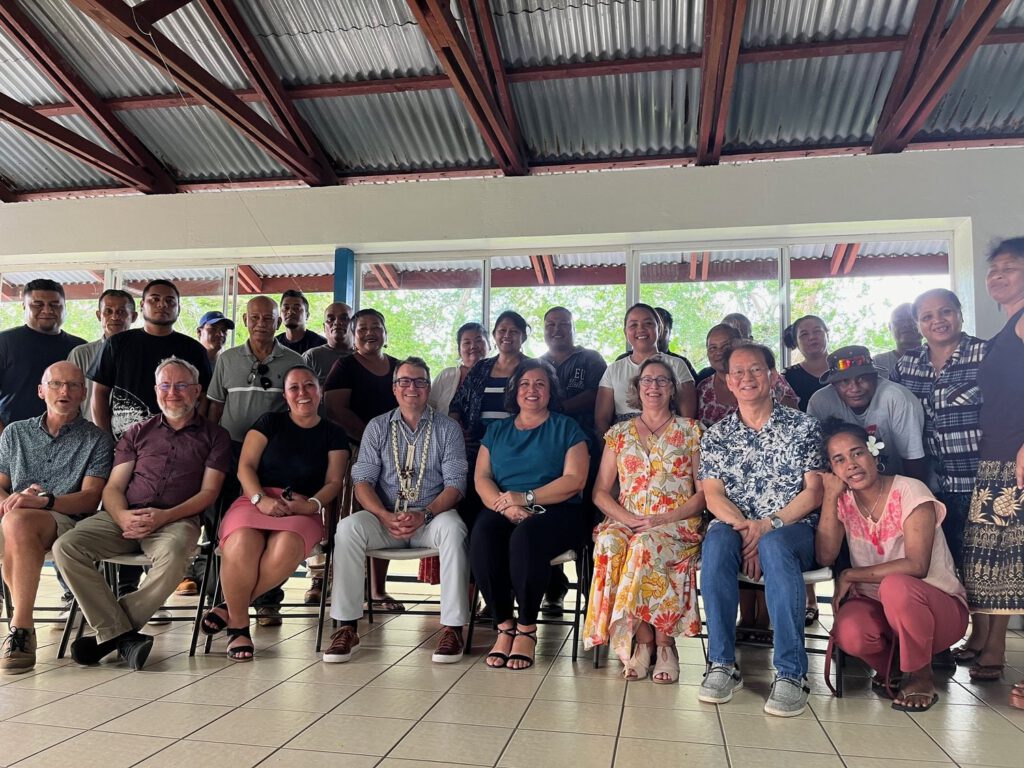Last week I had the pleasure of running my Leadership Discovery workshop with a fabulous group of people at the Western & Central Pacific Fisheries Commission.

This team has a pretty amazing responsibility – ensuring the long-term conservation and sustainable use of highly migratory fish stocks in the western and central Pacific Ocean.
As you can imagine, this is a big job considering that the region they support covers almost 20 per cent of the Earth’s surface. It is also worth noting that about 65% of the tuna that makes its way into the world marketplace comes from waters governed by this commission.
I’m so grateful for the work these people do. Their passion, commitment and dedication is inspirational, and I wanted to start this newsletter by thanking them for all that they do.
I also wanted to take a moment to share a few of the key takeaways from the workshop. These insights highlight the commission’s exceptional leadership qualities and offer valuable lessons that can benefit any leader, regardless of industry or context.
1. Self-Awareness Influences Performance
Self-awareness is the cornerstone of effective leadership. During the workshop, we delved into the critical role that self-awareness plays in influencing performance. Understanding your strengths, weaknesses, emotions, and the impact of your behavior on others allows you to lead with authenticity and empathy. Leaders who are self-aware can better manage their reactions, make informed decisions, and build stronger relationships with their teams.
The team at the commission demonstrated remarkable self-awareness, recognizing how their individual behaviors and decisions affect the broader mission. By fostering a culture of openness and continuous self-reflection, they ensure that their actions align with their core values and the organization’s goals. This level of self-awareness not only enhances individual performance but also drives team cohesion and organizational effectiveness.
In practical terms, self-awareness can be cultivated through regular feedback, mindfulness practices, and ongoing professional development. Leaders should seek out opportunities for self-assessment and be open to constructive criticism. By doing so, they can continuously improve their leadership capabilities and inspire their teams to reach higher levels of performance.
2. Achievements Are Driven by Actions, Assumptions, and Attention
One of the key insights from the workshop is that achievements are fundamentally driven by our actions, assumptions, and attention. The Fisheries Commission team’s success in managing vast oceanic resources is a testament to their strategic actions, informed by well-grounded assumptions and focused attention.
Actions are the tangible steps we take towards our goals. However, these actions are heavily influenced by our underlying assumptions—our beliefs about what is possible and how things work. If our assumptions are outdated or misguided, our actions may not yield the desired results. Therefore, challenging and updating our assumptions is crucial for effective leadership.
Attention, or where we choose to focus our energy and resources, also plays a vital role. Leaders who can maintain a balance between focusing on immediate tasks and the broader vision are more likely to drive sustained success. The Fisheries Commission team exemplifies this by balancing daily operational tasks with their long-term conservation goals.
By being mindful of these three elements—actions, assumptions, and attention—leaders can create a more strategic and adaptive approach to achieving their objectives. This holistic perspective ensures that every step taken is aligned with both the current needs and future aspirations of the organization.
3. Subtle Shifts In Actions, Assumptions, and Attention Can Make a Big Difference
During our workshop, we emphasized that sometimes the most significant changes come from the smallest shifts in our actions, assumptions, and attention. The Fisheries Commission team’s approach to leadership is a powerful example of how these subtle shifts can lead to substantial impact.
In practice, subtle shifts in actions might involve small adjustments in daily routines, communication styles, or decision-making processes. These incremental changes can lead to improved efficiency, better team dynamics, and enhanced problem-solving capabilities. For instance, a slight change in how feedback is given can transform team morale and performance.
Shifting assumptions requires a conscious effort to question long-held beliefs and be open to new perspectives. The Fisheries Commission team’s willingness to continuously reassess their strategies and adapt to changing circumstances has been pivotal in their success. This mindset fosters innovation and resilience, enabling the team to navigate complex challenges effectively.
Attention shifts are about realigning focus towards areas that matter most. By prioritizing key initiatives and being present in critical moments, leaders can drive meaningful progress. The team’s ability to stay focused on their conservation mission, despite numerous distractions, underscores the power of concentrated effort.
These subtle shifts, though seemingly small, accumulate over time to create significant and lasting changes, demonstrating that leadership effectiveness often lies in the details.
Want more?
If you like these ideas and want to do more work to increase the leadership capabilities in your organization schedule a meeting to discuss how we can bring this workshop into your organization.

